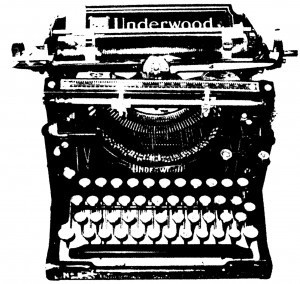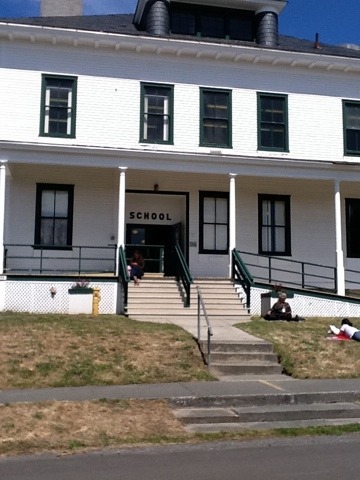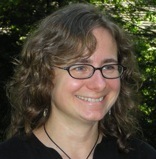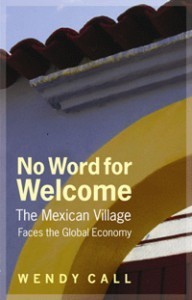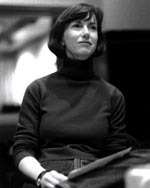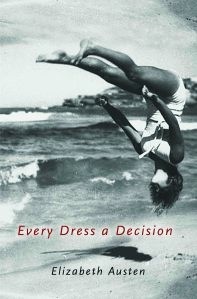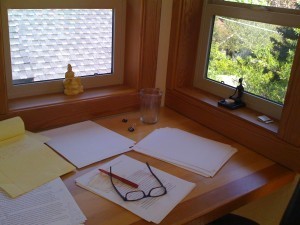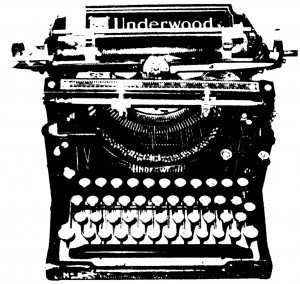Midge Raymond's Blog, page 45
July 29, 2011
On character
As I promised the writers in my Getting Into Character workshop at the Port Townsend Writers' Conference last week, here is my list (long, but by no means comprehensive) of Things I Like To Know About My Characters. Often I'll dream up a character and just start writing, but at some point I'll usually visit this list to see what else I'll need to know.
Name:
Nickname:
Age:
Gender:
Education:
Occupation:
Passion, if not same:
Finances:
Sexual orientation/status:
Sexual history:
Friends & enemies:
Family:
Hobbies:
Possessions:
Politics & religion:
Books & music:
Food:
Flaws:
Most noticeable feature / idiosyncrasy:
And on…and on…and on. Feel free to add your own items to this list — I've left out plenty of things, such as a character's favorite color, favorite ice cream, shoe size, bad habits, etc. — and many more. Knowing these little details help ensure that your character is truly separate from yourself.
Happy writing!

July 26, 2011
Weekly Writing: Objects
I'm always surprised by the way the simplest writing exercise can yield the most interesting material — and this is one of my favorites; I turn to it whenever I'm stuck, and it never fails to go somewhere unexpected.
Choose an object in the room; better yet, take a quick walk around and choose several. Then spend at least 10 minutes writing about each one, letting the object tell its own story.

July 19, 2011
Dispatches from the Port Townsend Writers' Conference
This week, I've been at the Port Townsend Writers' Conference at Centrum — an absolutely fantastic place to be reading, writing, and simply to be among writers. With morning and afternoon classes, afternoon craft lectures, evening readings, and views of the water, I can't think of a more inspiring place to be.
On Monday, I spent the morning writing (working on a stubbornly unfinished short story), and then went to Sam Ligon's afternoon class on short-short stories — a form that I admire and love to read but haven't had success with myself (I do well at 1,000 words and above — but writing a shorter story than that still mystifies me). Sam's class went a long way in demystifying the form, and his examples (from Willow Springs authors to Amy Hempel to his own story "Glazed," which appears in his collection Drift and Swerve) reinforced the major takeaway: that short-shorts must do away with most of the general rules of fiction (such as plot and character) and focus heavily on voice and mood, with a hard turn at the end.
Tuesday gave me more writing time, and in the afternoon I taught "Setting the Scene," in which I gave everyone writers' cramp as we discussed the various ways in which to insert the where into one's work.
Evening readings have included works by Pam Houston, Carl Phillips, Sam Ligon, and Paisley Rekdal — and I am especially looking forward to Friday's reading with Wendy Call as she reads from her hot-off-the-presses book No Word for Welcome.
And we're only halfway through this amazing week. Visit the Centrum web site for more info on how to get your own self here for next year's conference.

July 18, 2011
Weekly Writing: The unfamiliar
You've probably had the sensation of waking up in a hotel or at someone else's house and being momentarily disoriented because you think you're home, and it takes you a few moments to realize where you are. The feeling is a little strange and frightening — but also a little interesting and invigorating, as anything unfamiliar can be. Let this exercise take you to places, situations, and feelings unknown and unexplored.
Write about waking up in a strange place.

July 13, 2011
Book Promo 101: Interviews, part II
To follow up on Interviews, Part I, I'm happy to present a Q&A with Wendy Call, whose book No Word for Welcome: The Mexican Village Faces the Global Economy , was released last month to fabulous reviews. Wendy is a longtime journalist whose book is based on hundreds of interviews over ten years — and now, as part of her book tour, she is on the other side of the mic. She's done more than a dozen radio interviews in the last month and has a lot to share.
, was released last month to fabulous reviews. Wendy is a longtime journalist whose book is based on hundreds of interviews over ten years — and now, as part of her book tour, she is on the other side of the mic. She's done more than a dozen radio interviews in the last month and has a lot to share.
What are the best reasons for authors to do radio interviews?
The primary reason might not be to sell more copies of your book, but to reach a wider public with the idea(s) behind your book. In the month since my book No Word for Welcome was released, I've given fifteen radio interviews. Perhaps two times out of three, I notice a bump in my Amazon sales ranking in the hours after the interview airs. When I don't, it certainly doesn't mean the interview was a waste. I can think of many, many times I've listened to an author interview, and then checked her book out of the library, or discussed the author's work with a friend. When I buy the author's book, it's usually weeks or months after – most often after I've read or heard something else about the author.
If you land a radio interview in a city where you're giving a reading, a radio interview can bring a larger audience to your event. One of the very first readings I did for my book, No Word for Welcome, was in Los Angeles. I have a few friends and acquaintances in the city; a local organization helped me promote the event; and I did two radio interviews in the week prior to the reading. About one-third of the event's attendees were my friends and colleagues, one-quarter were members of the organization that helped with promotion, a few came because of a mutual friend's recommendation, and the remaining quarter came because they heard one of the interviews. So, radio interviews help, but they should be only one part of a wider promotion strategy.
What did you do to prepare yourself for being interviewed?
My publicist and I spent quite a bit of time developing a list of "suggested questions" that were sent out to each of the radio hosts being approached, making sure that those questions covered each of the major themes and ideas of my book. I then devoted about six hours to crafting careful answers to each of the questions. Of course, many of the interviewers asked their own questions, but having those well-rehearsed answers has really helped. My publicist and I also did an hour-long "mock interview" over the phone.
I also whatever is necessary to get enough sleep the night before the interview – it really does make a difference in both clarity of thought and quality of voice.
If there is one single thing an author should do before an interview, what should that be?
Relax for several minutes before the appointed time, breathe deeply, and review the three key points you want to make in the interview. (Note: "Readers, buy my book!" is not one of them!)
Do you have any tips for writers being interviewed for the first time?
Think in terms of vignette and story.
Listen to author interviews and think carefully about what appeals to you and what doesn't. While preparing for my interviews, I listened to NPR's audio archives. I found that the most compelling interviews are those in which the author offers clear, specific, brief vignettes to make her primary points.
Don't expect the interviewer to read your book.
Radio hosts are extremely busy people; some interview three or four authors each week. I know very few people who read three or four books every week. I've had interviewers who had clearly read most or all of my book, and others who hadn't read past the flap copy. While I'm grateful to those who did read it, I have to say it's fine either way. To be honest, it's often easier when the interviewer hasn't read the book. Those interviewers tend to ask more basic questions, so it's easier to give answers that will make sense to an audience that knows absolutely nothing about you or your book.
Be grateful.
There are far more books being published than there are radio hosts to interview those books' authors. Any radio host who chooses to interview you is giving you a real gift.
To hear Wendy putting these tips into practice, you can listen to her interview with KPFK, as well as her interview with WBAI (her segment begins 15 minutes in).

July 12, 2011
Book Promo 101: Interviews, part I
For my next two posts, I've done a couple of mini-interviews of my own, with two fabulous writers — Elizabeth Austen and Wendy Call — both of whom have vast, invaluable experience as both interviewer and interviewee.
Today's Q&A is with Elizabeth Austen, who has interviewed dozens of writers over the past ten years years for KUOW, 94.9, one of Seattle's NPR affiliates. She is also a poet, performer, and teacher who has been interviewed countless times herself — and she has a lot to share about how to give your very best in a live interview. (Click here to find some of Elizabeth's interviews.)
What are some of the best ways an author can prepare for a live interview?
The most important thing is to spend some time beforehand thinking about what you want to say about your work. Imagine the interview is already over: What do you want to have said? What would you regret NOT saying?
Often, the person interviewing you will not have had time to read your book. So you need to be prepared with a short description of it. What's your book about? Why did you write it, and why did you write it this way? How is it different from your previous work? Is there an interesting story about how it got published? Also think about what you want to say about how you got started writing and why you continue to do it. You're essentially interviewer-proofing yourself. Hopefully you'll get an interviewer who is genuinely interested in you and your book, and will talk with you briefly before the interview starts about what he/she wants to discuss, but you can't depend on that.
Also, choose a couple of short excerpts or a few short poems that you might read aloud. What would provide a good introduction to the book? Practice reading aloud, and practice giving a concise introduction to what you're going to read.
If you have time, I recommend listening online to an example or two of your interviewer's program, so that you'll have a sense of what to expect in terms of tone and approach. Does this interviewer tend to ask more about craft and process, or about the backstory of the book or individual poems? Is the interviewer looking for anecdotes and stories? Does it seem like the interviewer has actually read the book?
I'm a great believer in preparing for anything, and then letting go of the preparation during the interview so you can respond to what's actually happening in the conversation. The most important thing is to be present. In the moment, approach it like you would any conversation with someone you care about — by listening and responding as honestly and generously as you can.
What if you're asked a question you can't (or don't wish to) answer?
If there are topics that you consider off-limits for the interview, try to come to an understanding about that with your interviewer beforehand. Remember that it's perfectly fine to admit that you don't know the answer to
a question. Maybe the interviewer is suggesting something you've never considered before — just say so, and answer as fully as you can in the moment.
And if the question seems intrusive or inappropriate to you, then take a deep breath and pose a different question to yourself, and the answer. Perhaps something like this: "For me, the real question is…." or "Well, I'm more interested in why…"
Do you have any broadcasting secrets for how to sound your best on the radio?
Well, they're not really secrets, but here are a couple of things to keep in mind. Try to get a good night's sleep, but don't freak out if you don't. For a variety of reasons that I won't go into here, I got less than four hours of sleep the night before I was interviewed on KUOW along with former poet laureate Billy Collins. I think I was actually too sleep-deprived to be
nervous. However, I don't recommend this as a tactic, in general! [Editor's note: One would never guess that Elizabeth didn't sleep 8 hours that night. It was an amazing interview and discussion.]
Of course, avoid dairy products for a few hours before and don't drink so much caffeine that you're twitchy. Keep your feet on the ground, remember to breathe, and most of all, treat the interview like you would a conversation — that means listening as well as speaking.
And on a technical note – before the interview starts, try to get a chance to talk into the microphone to make sure you're not too close or too far away.
Do you have advice for writers who get nervous before interviews?
Does anybody not get nervous before interviews? I know I do — whether I'm the interviewer or the interviewee. I have a mantra that I tell myself before I perform, and it's equally true when I'm interviewing or being interviewed: "The performance requires me, but it's not about me." In other words, I need to show up and be present, but the focus is on the work, not on me or my ego (even if I'm talking about my process or any autobiographical connection to the material). The point — whether in a performance or an interview–is to help the reader connect to the work. When I keep my focus on that, my anxiety is much less likely to take over. Another thing to remember is that the nervousness is a kind of necessary fuel.
What if you make a mistake on the air — is there any way to overcome that?
The fact is that the best radio is made when people are actually talking to each other — so that means they're going to make mistakes sometimes. If you mis-state something and realize it on the air, just correct yourself. If the interview is being recorded, and you stumble while reading an excerpt from your book, just back up to the beginning of a sentence — they can correct it in the editing room. If you're reading live, just go with it, like you would at a live reading. You don't have to be perfect. You just have to be you (hmmm — and maybe that's the scarier prospect!)
Tomorrow, come back for a Q&A with Wendy Call, with more interviewing advice for writers…

July 11, 2011
Weekly Writing: Mistakes
July 7, 2011
Create your own virtual writing retreat
Sadly, lately my writing has taken a backseat to everything else. So last week, I decided that I would use the long holiday weekend for an unofficial writing retreat. "Unofficial" essentially means that I didn't need to apply, travel, or formally do anything other than pledge to write — perfect for such a last-minute decision.
When I mentioned this to my friend Wendy Call, an alumna of Hedgebrook, she too was up for the idea; she'd already been part of a more formal virtual retreat, Hedgebrook Writes (a brilliant idea). So when Wendy got a few other writers on board for a virtual retreat via Facebook, and my unofficial writing retreat began to feel a little more official.
Writing time is precious and necessary, but let's face it — we can't always leave home; we can't always plan ahead. Yet there is no reason we can't create our own writing retreats at any time, for any length of time, whenever we need to. A few hours of retreat time is better than none at all — it's just a question of making the time. And so I finally did just that.
It was a great weekend overall, and I learned a few things that will make my next one even better. So here are a few tips that I hope will help you create your own writing retreat…
- Just do it. My retreat was completely last-minute and completely unplanned. I wasn't even thinking about it until I found myself, while writing an email to Wendy, realizing that I absolutely had to spend some time writing that weekend. So I decided to do it, told her my plan, and I'm so grateful that she ran with it, giving me no excuse to flake out on myself. Which brings me to my next tip…
- Gather your fellow writers together. You don't necessarily need to gather in one place; what's important is that you all agree to write during the duration of the retreat. This will ensure that you actually write (be accountable to yourself and others by keeping in touch, or by reporting your progress at the end), and it'll also give you the inspiration you need if your energy or creativity begin flagging. And, of course, if you do live close to your writing buddies, by all means, do get together, whether for a few hours of freewriting or a weekend retreat at a nearby inn. The group dynamic helps immeasurably.
- Clear the decks. On the first day of my retreat, I decided I would just do "one little update" to my web site, and as you can imagine, one thing led to another and six hours passed with no writing getting done. By then I had a headache, so I went for a walk, which ended up being a three-mile hike (albeit lovely — and I saw my first wild turkey ever, so it was worth it). But basically I lost my entire first day because I thought I could take care of one little thing before getting started. Make sure you've taken care of all that you need to do before retreating, so you aren't tempted to do anything else that could end up overtaking your writing time.
- Create your space. You may have a place in mind for your retreat — a fellow writer's house, a quiet cafe, a library — but perhaps more likely you'll be writing at home. If you have other family there with you, you'll need to let them know that you're On Retreat and can't be disturbed. Make whatever arrangements you need, from child care to pet care to hanging a DO NOT DISTURB sign on your door. This is your time.
- Stay offline. I didn't check email, Twitter, Facebook, or anything else all weekend. It felt so great. For me, it helped that this was a holiday weekend during which nothing was happening work-wise — try to plan your retreat at a time when you won't feel compelled to stay connected. And do whatever you must to be sure you don't interrupt yourself with the lure of the web.
- Give yourself guidelines. Whether it's a timeline (writing from 9 a.m. Friday to 5 p.m. Sunday, for example) or project-related (finishing that first draft of your novel), give yourself clear parameters and stick with them. Figure out what works best for you (you may prefer a time-based schedule to avoid feeling pressured to finish a specific project; on the other hand, if you tend to procrastinate, setting a project-specific goal may be better). Then set your schedule and go.
- Afterward, assess the pros and cons, the highs and lows. This will allow you to better plan your next retreat. Was being at home too distracting? Do you need to fit more reading time into a retreat weekend? Do you need to stay off the computer and write by hand? Figure out what can make your next retreat more productive and fun, and work it into the plan.
- Schedule retreats often. I am already looking forward doing another D.I.Y. retreat over Labor Day weekend; I've decided that these long holiday weekends are perfect occasions for me to carve out some writing time. But because waiting until September is too long a stretch to not be writing, I also plan to find a weekend to retreat sometime in August as well, even if it's just a day, or a few hours. Plan ahead. You need and deserve this time.
And while creating your own, stay-at-home retreat is a beautiful thing, consider a more formal writing retreat as well — and if you do, check out these tips from Kelli Russell Agodon, an award-winning poet whose work is proof that writing retreats are necessary and magical.

July 6, 2011
The state of "writerhead"
Today I'm thrilled to be featured on Kristin Bair O'Keefe's Writerhead, a fabulous blog in which she interviews writers about the state of "writerhead" and what it means to them and their process. I loved answering her thought-provoking questions … not to mention reading writerhead stories about all the other wonderful writers she has featured.
Stop by Kristin's blog and check out not only Writerhead but all her fabulous tips, links, and writing news … you'll love it.

July 5, 2011
Weekly Writing: Regrets
When I'm creating new characters, I try to know all I can about them — and knowing their regrets is always a big help; this always turns out to be a big part of who they are. So whether you're exploring your own stories or those of fictional characters, you'll find that writing about his/her/your regrets is quite enlightening.
Write about regret, whether it's your own or that of your characters.


